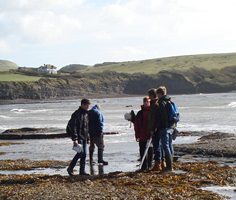Science Communication Award 2014 – why apply?
Liz Granger is a previous winner of the Science Communication Award and has just finished a PhD in cell biology. Here she tells us about her experiences after winning the award and why others should apply. During my PhD I got involved with lots of different public engagement projects and school outreach activities. Back in 2012 the awards application process worked slightly differently with a nomination system in place. When a colleague, Davina Whitnall, offered to nominate me I was over the moon. It sounds trite, but I genuinely didn’t expect to win and I was just pleased to be nominated. When I found out I’d won I couldn’t believe it. Doing research was something that I did really enjoy (most of the time) but I realised during my PhD, education and science communication is where my heart lies. I think winning this award has opened a lot…

